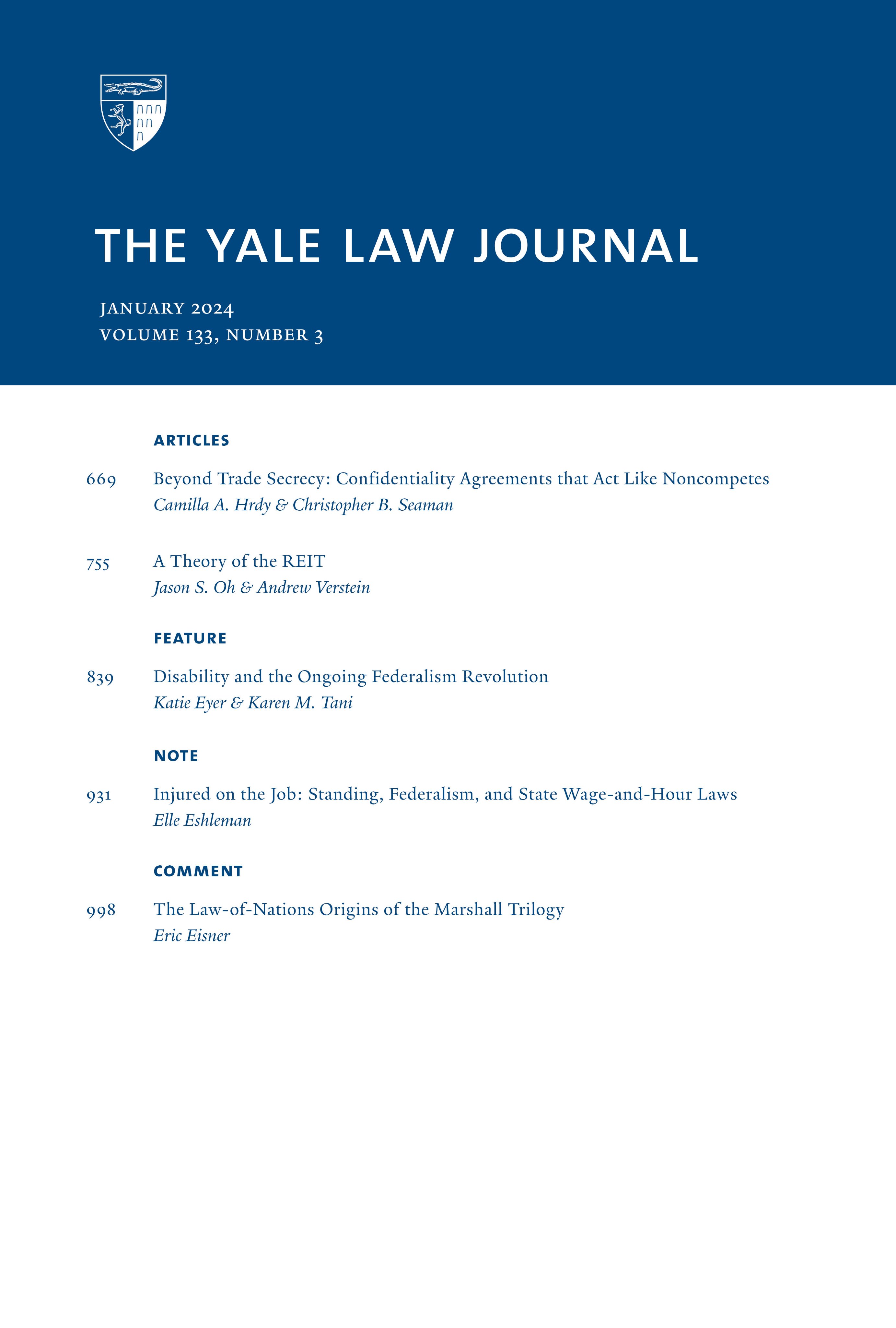认识到联合骚扰/报复索赔的潜力
IF 5.2
1区 社会学
Q1 LAW
引用次数: 2
摘要
报复性动机和歧视性动机通常在工作场所重叠,但法院在评估第七章的主张时,往往会将报复性动机与歧视性动机分开。本说明批评了分类背后的理由,并呼吁法院将投诉后的行为理解为既构成报复又构成升级骚扰。本文章由计算机程序翻译,如有差异,请以英文原文为准。
Realizing the Potential of the Joint Harassment/Retaliation Claim
Retaliatory and discriminatory motives commonly overlap in the workplace, but courts often disaggregate retaliatory motives from discriminatory ones when evaluating Title VII claims. This Note critiques the rationales behind disaggregation and calls for courts to understand post-complaint behavior as constituting both retaliation and escalated harassment.
求助全文
通过发布文献求助,成功后即可免费获取论文全文。
去求助
来源期刊

Yale Law Journal
LAW-
CiteScore
4.50
自引率
6.20%
发文量
0
期刊介绍:
The Yale Law Journal Online is the online companion to The Yale Law Journal. It replaces The Pocket Part, which was the first such companion to be published by a leading law review. YLJ Online will continue The Pocket Part"s mission of augmenting the scholarship printed in The Yale Law Journal by providing original Essays, legal commentaries, responses to articles printed in the Journal, podcast and iTunes University recordings of various pieces, and other works by both established and emerging academics and practitioners.
 求助内容:
求助内容: 应助结果提醒方式:
应助结果提醒方式:


